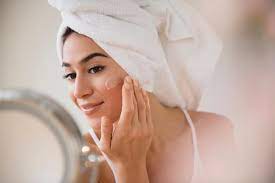Skincare, an age-old practice, has evolved significantly Skincare from its ancient roots into a sophisticated, science-driven field that combines tradition with innovation. What was once a ritualistic endeavor is now a dynamic realm where art meets science, offering a myriad of solutions to nurture and enhance the skin. In this exploration, we’ll delve into the intricate world of skincare, unraveling its multifaceted aspects and uncovering the secrets to achieving a radiant complexion.
The Foundation: Understanding Your Skin
Before diving into the plethora of skincare products and techniques available, it’s crucial to understand the fundamental building blocks of skincare: the skin itself. The skin is the body’s largest organ, serving as a protective barrier against environmental elements, pathogens, and toxins. Its primary layers—the epidermis, dermis, and hypodermis—each play a unique role in maintaining overall skin health.
The epidermis, the outermost layer, is responsible for the skin’s appearance and functions as a shield against external aggressors. The dermis, situated beneath the epidermis, houses blood vessels, nerve endings, and collagen, contributing to skin’s elasticity and firmness. The hypodermis, or subcutaneous layer, provides cushioning and insulation.
The Skincare Routine: Crafting a Personalized Regimen
A well-rounded skincare routine addresses various aspects of skin health and beauty. Tailoring a regimen to individual skin types and concerns is essential for optimal results. Here’s a general guide to creating a skincare routine that works for you:
- Cleansing: The cornerstone of any skincare routine, cleansing removes dirt, oil, and impurities. Opt for a gentle cleanser that suits your skin type—whether it’s foaming, creamy, or micellar.
- Exfoliation: Exfoliating removes dead skin cells, promoting cell turnover and revealing a fresh layer of skin. Chemical exfoliants like AHAs (alpha hydroxy acids) and BHAs (beta hydroxy acids) offer gentle yet effective options compared to physical scrubs.
- Toning: Toners help balance the skin’s pH levels and prep it for better absorption of subsequent products. Choose a toner with ingredients like witch hazel or rose water for soothing and hydrating effects.
- Serums: Serums are concentrated formulations designed to address specific skin concerns such as hydration, pigmentation, or aging. Vitamin C serums are popular for brightening, while hyaluronic acid serums provide deep moisture.
- Moisturizing: Hydration is key to maintaining skin’s elasticity and preventing dryness. Moisturizers come in various forms, including creams, gels, and lotions. Consider a product that matches your skin’s needs—lightweight for oily skin, rich and emollient for dry skin.
- Sun Protection: Sunscreen is arguably the most crucial step in any skincare routine. Daily application of a broad-spectrum SPF 30 or higher protects the skin from harmful UV rays, preventing premature aging and reducing the risk of skin cancer.
The Role of Ingredients: Decoding Labels
Understanding skincare ingredients is vital for making informed choices. Key ingredients to look out for include:
- Retinoids: Known for their anti-aging properties, retinoids stimulate collagen production and improve skin texture. They can be found in both prescription and over-the-counter products.
- Hyaluronic Acid: A powerful hydrating agent, hyaluronic acid attracts and retains moisture, plumping the skin and reducing the appearance of fine lines.
- Niacinamide: This versatile ingredient helps improve skin elasticity, even out skin tone, and reduce inflammation.
- Antioxidants: Ingredients like vitamin C, vitamin E, and green tea extract combat oxidative stress and protect the skin from environmental damage.
Beyond Products: Lifestyle and Skin Health
Skincare isn’t solely about the products you use—lifestyle choices play a significant role in achieving and maintaining healthy skin. Consider these factors:
- Diet: A balanced diet rich in antioxidants, healthy fats, and vitamins can support skin health from within. Foods like berries, avocados, and nuts contribute to a radiant complexion.
- Hydration: Drinking plenty of water helps maintain skin’s hydration levels and overall health.
- Sleep: Quality sleep is essential for skin repair and rejuvenation. Aim for 7-9 hours of restful sleep each night.
- Stress Management: Chronic stress can impact skin health, leading to issues like breakouts or dullness. Incorporate stress-reducing practices such as meditation or exercise into your routine.
The Future of Skincare: Innovations on the Horizon
The skincare industry continues to evolve with advancements in technology and research. Emerging trends include personalized skincare solutions based on genetic analysis, advanced delivery systems for targeted treatment, and eco-friendly, sustainable packaging. As science and technology progress, the future of skincare promises even more tailored and effective solutions.
Conclusion
Skincare is a multifaceted journey that blends art, science, and personal care. By understanding your skin’s needs, selecting the right products, and adopting a holistic approach to wellness, you can achieve and maintain a glowing, healthy complexion. As we continue to explore new frontiers in skincare, one thing remains constant: the pursuit of radiant, healthy skin is a lifelong endeavor worth embracing.

